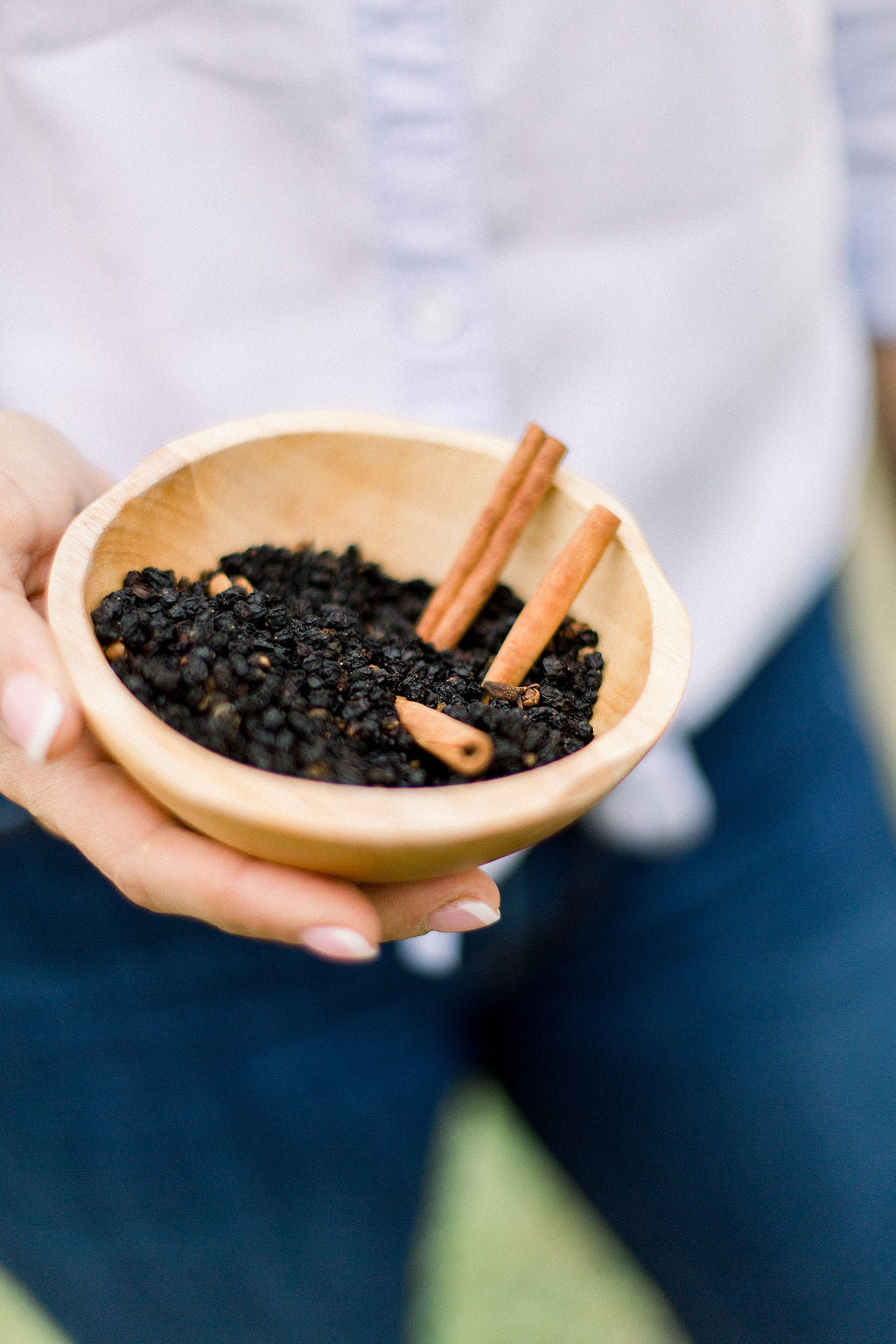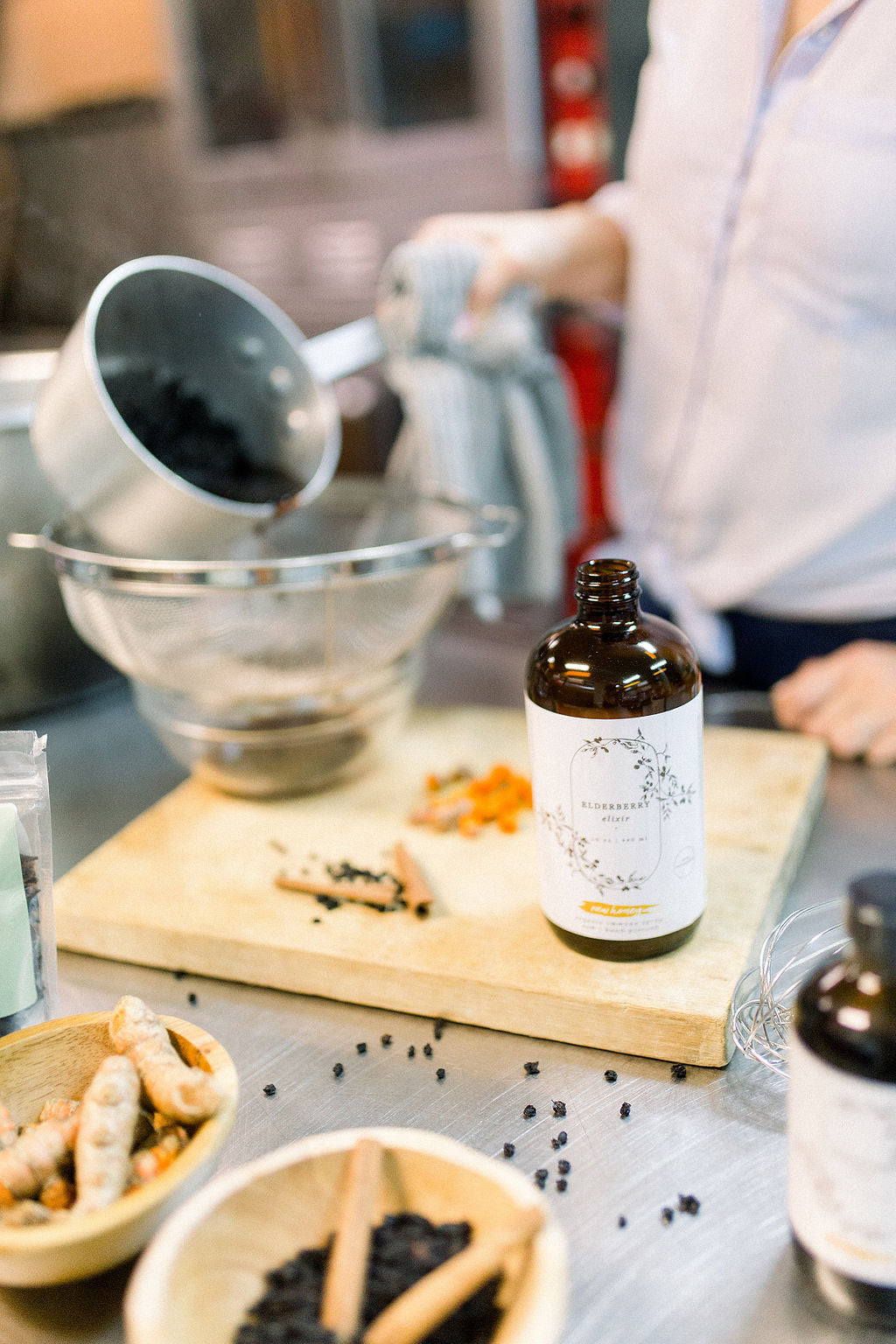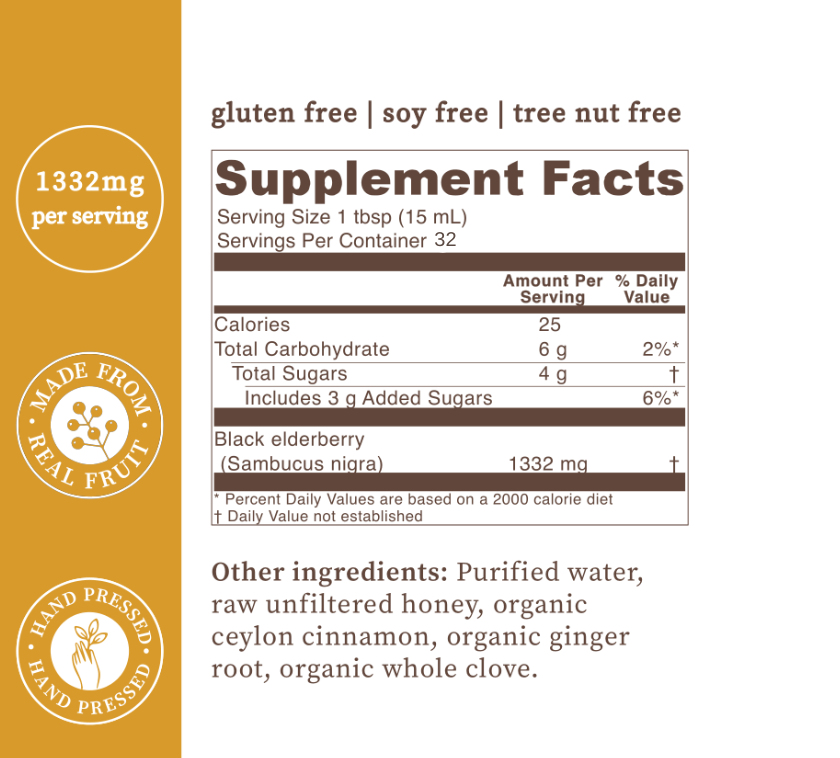
Our Berries
Black Wild-Crafted European Elderberries (Sambucus nigra)
"Wild-crafted" refers to plants or herbs that are harvested from their natural habitat rather than being cultivated on a farm. This method emphasizes sustainable harvesting practices, ensuring that the plants are collected in a way that preserves their populations and ecosystems. Wild-crafted products are often valued for their purity and potency, as they grow in their native environments without the use of synthetic fertilizers or pesticides.
European elderberries (Sambucus nigra) are often considered superior to American elderberries (Sambucus canadensis) for several reasons:
- Higher Nutritional Content: European elderberries tend to have a higher concentration of antioxidants, vitamins, and other beneficial compounds.
- Flavor Profile: Many people find the flavor of European elderberries to be richer and more complex, making them preferable for culinary uses, such as jams, syrups, and wines.
- Medicinal Properties: European elderberries have a long history of use in traditional medicine, and some studies suggest they may be more effective in supporting immune health and fighting colds and flu.
- Cultivation and Availability: European elderberry cultivars have been selectively bred for specific traits, such as size and sweetness, making them more desirable for commercial production.
- Tighter regulations: Pesticides must pass thorough safety tests for health and environmental impact before being approved. The EU bans or limits more pesticides than many other countries.

Our Process
One year shelf-life
Making a product shelf-stable involves several steps to ensure it can be stored at room temperature without spoiling. Here’s a simplified overview of the process:
- Formulation: Start with a recipe that balances ingredients to inhibit microbial growth. This often includes adjusting pH levels, sugar content, or using preservatives.
- Preservation Methods: Use methods like pasteurization or canning to kill bacteria and enzymes.
- Packaging: Use airtight, moisture-resistant packaging to protect the product from air and contaminants.
- Testing: Conduct shelf-life studies to determine how long the product remains safe and maintains quality under various conditions.
- Labeling: Include storage instructions and expiration dates to inform consumers about how to store the product.

Our Transparency
Obtaining a supplement facts panel for an herbal supplement is a costly and time-consuming process for small businesses but an essential one.
We want to provide our customers with 100% transparency and awareness of what they are giving their families and simply stating ingredients on a bottle doesn't help consumers make an informed decision.
We worked hard to have our Elderberry scientifically tested and verified because we believe that's what our customers deserve- the very best.